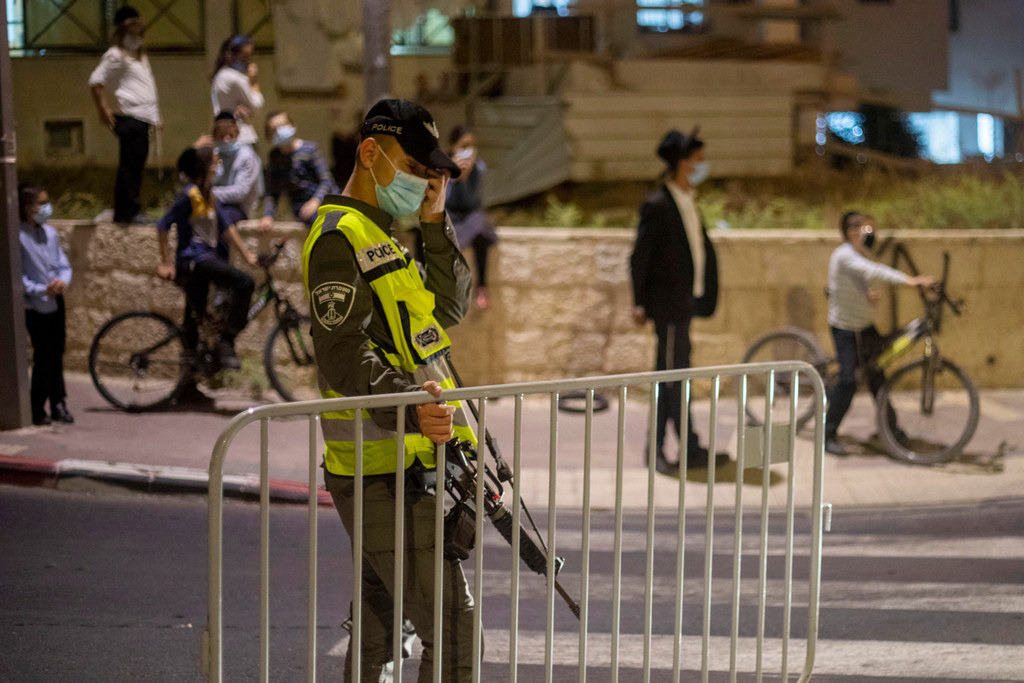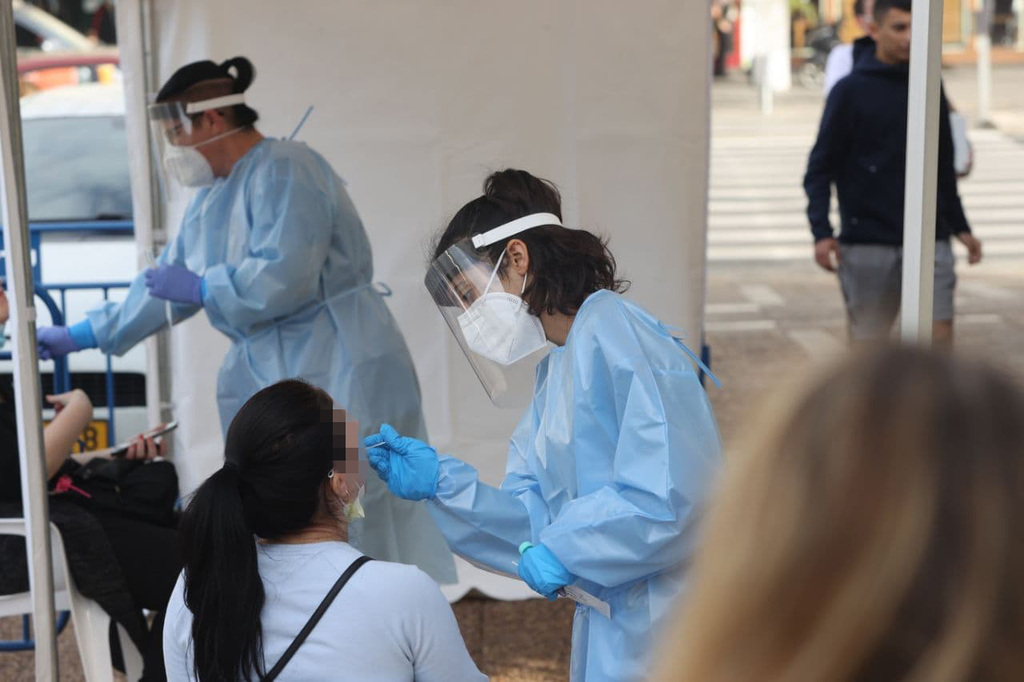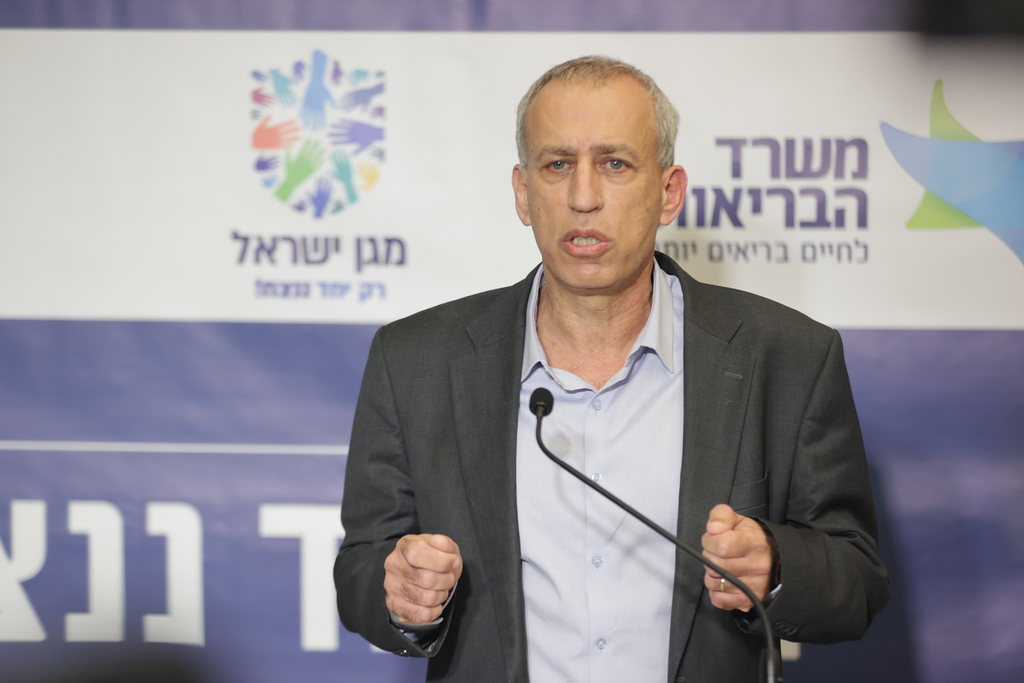The Health Ministry Tuesday morning reported that 1,837 new coronavirus cases have been diagnosed on Monday, the highest daily rise in new infections since mid-October.
The death toll since the start of the pandemic 2,924.
Out of the 13,949 patients currently battling the disease, 315 are in serious condition, with 107 connected to ventilators.
With 67,081 tests conducted on Monday, the contagion rate sits at 2.8%.
Israel’s Coronavirus Cabinet on Monday approved a nighttime curfew starting Wednesday.
Malls, shopping centers, museums, cultural events and schools will remain open during the day in accordance with prior restrictions.
The permitted opening of hotels in Eilat and the Dead Sea will also remain.
3 View gallery


A police checkpoint in Beit Shemesh during a lockdown over one of its neighborhoods
(Photo: AP)
The time of day in which the curfew will start has yet to be decided, with ministers set to meet on the details on Tuesday. Health Minister Yuli Edelstein was reportedly mulling 7pm.
National Security Adviser Meir Ben Shabbat offered a three-tier restriction scheme to reduce COVID infections to less than 1,000 daily cases, which will be approved on Tuesday by ministers and health officials.
Shabbat also called for another nationwide lockdown if cases do not decline by January 2 or if daily cases exceed 4,500.
However, coronavirus czar Prof. Nachman Ash doubted the efficacy of the nighttime curfew, saying it will not cause a “significant change in the immediate run.”
Acting police commissioner Motti Cohen was also skeptical, adding that the force does not have sufficient manpower for such an undertaking.
It was also reported Monday that the first shipment of Pfizer's COVID-19 vaccine will arrive in Israel on Thursday. A larger shipment was also slated to arrive on Friday. Some 4 million doses of the vaccine are expected to arrive in Israel by the end of the month.
Shipments will arrive from United Cargo's European distribution center using state-of-the-art temperature-controlled shipping containers.



